Apacheby The Shadows

Songfacts®:
- "Apache" stands today as probably the best-known work by British proto-surf-rock band The Shadows. Being a #1 hit in the UK in 1960 was just the beginning; the instrumental song with an Old West motif was a worldwide hit with the #1 position in seven international charts at the same time: UK, Australia, France, Ireland, New Zealand, Spain, and South Africa.
With a record like that, why didn't it chart in the US? Mostly because The Shadows didn't get much promotion in America, and also because they didn't go there to tour. Had some enterprising American DJ found the record and given it some spins, this story may have had a different ending, but The Shadows couldn't break through. It took a year before the song finally charted in the US, and it was a version by the Danish jazz guitarist Jorgen Ingmann that did it. He went to #2 with the song in 1961 - his only US hit. - The Shadows guitarist was a 6-string wizard named Hank Marvin, and his work on this song inspired a legion of young British guitarists. In a 1963 interview for NME magazine, The Shadows referred to this song as an example of what distinctive sound they had that made them special. To get this "Hawaiian sound" (as they put it) to the lead guitar, you need to plug American Fender guitars into British Vox amplifiers. At least, that was how they did it.
John Lennon once claimed that The Shadows were one of the only things in British music "worth listening to" before The Beatles came along. - This song was written by Jerry Lordan, a British singer/guitarist/songwriter who had three UK hits in the '60s, including "Who Could Be Bluer," which was on the charts when he toured with The Shadows early in 1960. Lordan played "Apache" for the Shadows on the tour bus using his ukulele, which he used to write songs, and The Shadows loved it. Lordan hadn't recorded the song himself - the first recording was by the Guitarist Bert Weedon, but Lordan wasn't thrilled with his version, and Weedon's record company hadn't yet released the song, so The Shadows cut their own version which became a #1 UK hit for five weeks and was voted Record of the Year by NME.
The Shadows met with resistance from their record company and had to persuade producer Norrie Paramour that it should be the A-side over the naval tune, "Quatermaster's Stores." Norrie was in his 40s and realized he might be a little out-of-touch, so he played both songs to his teenage daughter, who agreed with The Shadows. When he asked her what song he liked better, she said, "The Indian one."
Once The Shadows scored with the song, Bert Weedon's version was finally released and charted at #24. - Jerry Lordan got the idea for this song after watching the 1954 film Apache, starring Burt Lancaster as the Apache warrior Massai. Said Lordan: "I wanted something noble and dramatic, reflecting the courage and savagery of the Indian."
- The Shadows released three singles before they finally hit big with "Apache." The group was also Cliff Richard's backing band, and Richard played on this track. Richard used a Chinese drum to simulate the Old West percussion sound.
-
- This song became the foundation for many early hip-hop tunes after it was reworked by The Incredible Bongo Band in 1973. This version featured an extended drum break that Kool Herc and other DJs looped in their sets. As Hip-Hop emerged in the '80s, producers put this break into their tracks, and it made its way into a plethora of songs from this era. Some of the tracks to sample it include "The Adventures of Grandmaster Flash on the Wheels of Steel," "Way Way Back by Kool Moe Dee" and "You Can't Dance by LL Cool J." The Sugarhill Gang did a popular cover of the song in 1981.
- Movies that used this song include Baby Love (1968) and Scandal (1988).
- Hank Marvin recalled to Uncut magazine the band's reaction after Jerry Lordan played his demo to the Shadows on the back of their tour bus. "There was something magic about its atmosphere," he said, "even in that very raw, exposed state. We learned it on the bus and in the venues. Then back in London, we arranged it."
"First of all I came up with the drum introduction, and then CLANG DA-DA-DAAYI-YA, DA-DA-DA-DA-DAH," he continued. "And I wanted to get some echo on the guitar that gave it a character. It's a multi-tapped echo-it's not too long, but you could hear the multi-taps coming through, and it gives a richness to the guitar sound, and a strange, haunting quality, behind the notes. I wasn't afraid of giving it a lot of echo, because I thought it was such a good and different sound it didn't matter. I was making a statement with this echo. I didn't want to be too discreet with it, because it needed to be almost in your face. You can hear the whammy bar shaking the guitar and getting vibrato, too." - Though many people recognized the song's hit potential straight away, Hank Marvin wasn't so sure. He recalled to The Big Issue.
"It went into the chart at 19 and started creeping upwards. Then I remember we were playing the London Palladium and we got a call from the record company telling us it was #1. We couldn't believe it, we all went potty. The funny thing was, the record it knocked off #1 was 'Please Don't Tease' by Cliff. To be honest, Cliff thought it was great that we knocked him off. He still makes a joke about it when he plays that song." - Advertisements for this song declared: "Hang on to your scalps!"
Comments: 4
- Christopher from Charlotte Nc 28270I want To add that after The Shadows version became a huge hit and before Jorgen Igmann recorded his version, that Jerry Lordan DID record the song himself along with The Johnnie Spence orchestra. His own recording differs from Weedon's, Shadows, and Ingmann's cover in that in addition to the guitar
there is also big orchestral accompaniment.
Here's a link
https://www.youtube.com/watch?v=oovh7kgPYBQ - Barry from Sauquoit, NyOn September 4, 1960, "Because They're Young" by Duane Eddy peaked at #2 on the United Kingdom's Singles chart, as a result the top two records on the Singles chart were both instrumentals...
At #1 was "Apache" by the Shadows, it was in it's third of five weeks in the #1 position...
Also in the Top 20 at the time there were two versions of the instrumental "Walk Don't Run", the Ventures were at #17 and the John Barry* Seven's version was at #24...
* This was the same John Barry, who between 1966 and 1990 would win five Academy Awards, two for "Born Free", and one each for "The Lion in Winter", "Dances with Wolves", and "Out of Africa". - Roy from Slough, United KingdomInteresting fact (or not) the B side was actually spelt Quatermasster as in the horror films of that period. the Shadows had a knack for making up funny titles... I suppose you would call it a pun.
- Zabadak from London, EnglandThis (or a version of it) was much sampled by early hip hop pioneers...
More Songfacts:
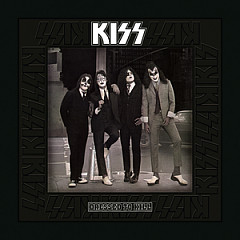
Rock And Roll All NiteKiss
Paul Stanley and Gene Simmons of Kiss wrote "Rock And Roll All Nite" as a "rallying cry for all of our fans." In later years, members of Kiss wrote songs separately.
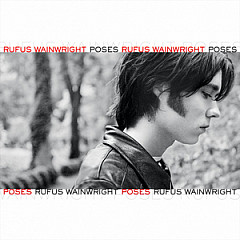
Cigarettes And Chocolate MilkRufus Wainwright
"Cigarettes And Chocolate Milk" describes a time in Rufus Wainwright's life when he found himself hungover and pounding chocolate milk to feel better. It didn't work, so he smoked a cigarette, which is when he realized his addictive personality could be a problem.
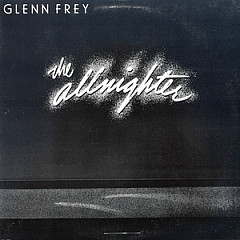
Smuggler's BluesGlenn Frey
Glenn Frey of the Eagles played a bad guy in a 1985 episode of Miami Vice based on his song "Smuggler's Blues."
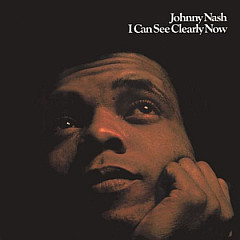
I Can See Clearly NowJohnny Nash
"I Can See Clearly Now" by Johnny Nash was the first reggae song to hit #1 in America on the Hot 100.
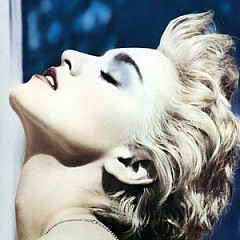
Open Your HeartMadonna
The kid in Madonna's "Open Your Heart" video became a successful songwriter. His songs include Amy Winehouse's "You Sent Me Flying" and James Blunt's "1973."

Louie LouieThe Kingsmen
"Louie Louie" was first recorded in 1955 by an R&B singer named Richard Berry, and his lyrics are easy to understand. When The Kingsmen recorded the hit version, their lyrics were indecipherable.
Editor's Picks
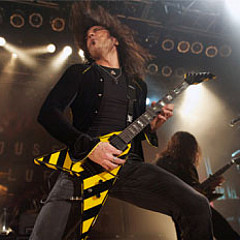
Michael Sweet of StryperSongwriter Interviews
Find out how God and glam metal go together from the Stryper frontman.
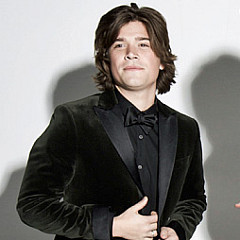
Zac HansonSongwriter Interviews
Zac tells the story of Hanson's massive hit "MMMbop," and talks about how brotherly bonds effect their music.
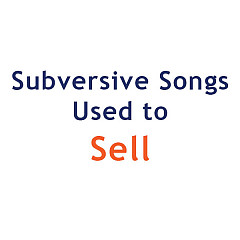
Subversive Songs Used To SellSong Writing
Songs about drugs, revolution and greed that have been used in commercials for sneakers, jeans, fast food, cruises and cars.
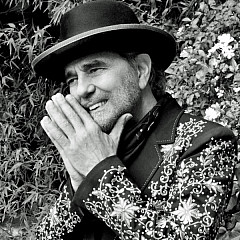
Daniel LanoisSongwriter Interviews
Daniel Lanois on his album Heavy Sun, and the inside stories of songs he produced for U2, Peter Gabriel, and Bob Dylan.
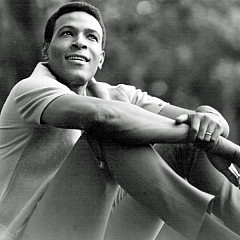
Marvin GayeFact or Fiction
Did Marvin try out with the Detroit Lions? Did he fake crazy to get out of military service? And what about the cross-dressing?
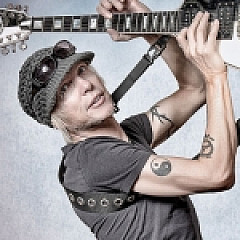
Michael SchenkerSongwriter Interviews
The Scorpions and UFO guitarist is also a very prolific songwriter - he explains how he writes with his various groups, and why he was so keen to get out of Germany and into England.

